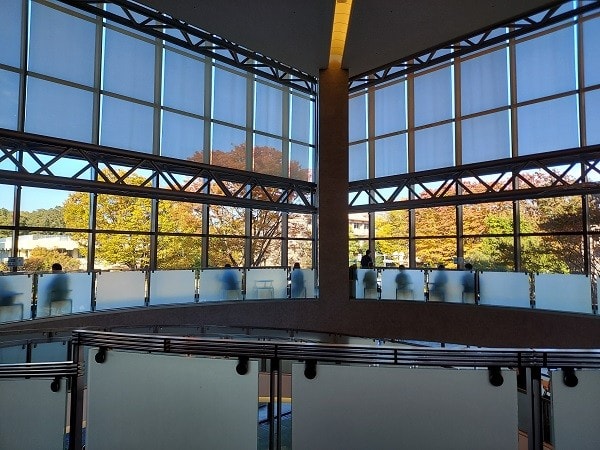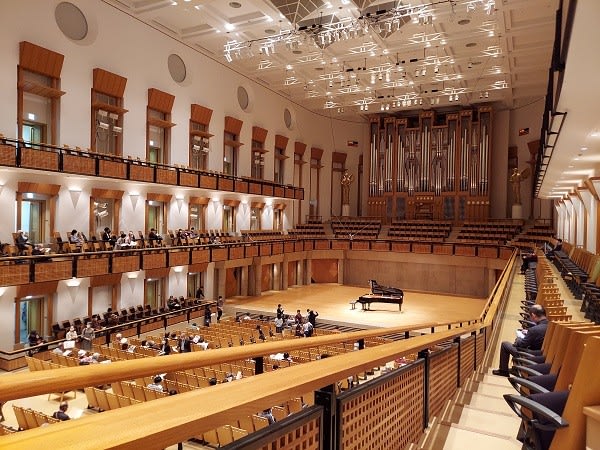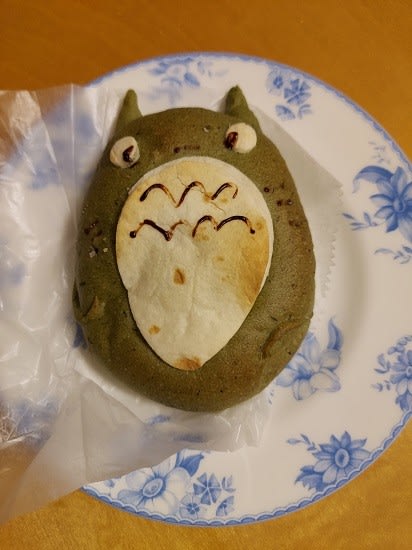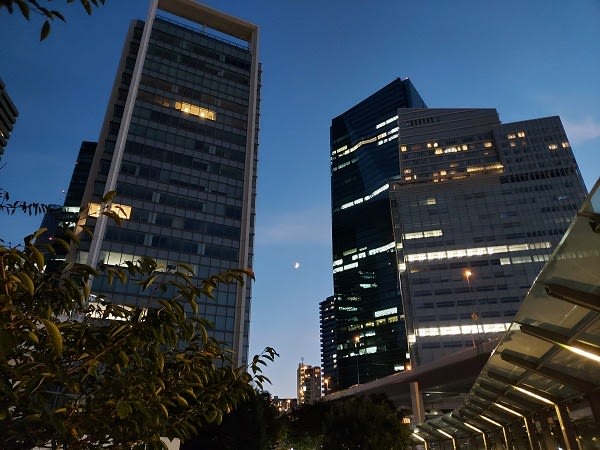
モーツァルト/幻想曲 ハ短調K.396
モーツァルト/ドゥゼードの「リゾンは森で眠っていた」の主題による9つの変奏曲 K.264
モーツァルト/ロンド イ短調 K.511
ショパン/ワルツ第3番 イ短調 作品34-2(プログラムでは「第19番 イ短調」となっていたけれど、実際に演奏されたのは第3番でした)
ショパン/バラード第2番 ヘ長調 作品38
(20分間の休憩)
モーツァルト/幻想曲 ハ短調 K.475
モーツァルト/ピアノ・ソナタ第14番 ハ短調 K.457
ショパン/ノクターン第7番 嬰ハ短調 作品27-1
ショパン/ノクターン第8番 変ニ長調 作品27-2
ショパン/バラード第3番 変イ長調 作品47
モーツァルト/ロマンス 変イ長調(アンコール)
ショパン=リスト/「6つのポーランドの歌」より「乙女の願い」(アンコール)
2年半ぶりのヴィルサラーゼを聴きに錦糸町に行ってきました。
前回は神奈川県立音楽堂と浜離宮で聴いたので、これで3つのホールで彼女の演奏を聴けたことになります。
このような情勢なので直前まで来日できるか心配したけれど、無事聴くことができてよかった。ザハロワが来日できているのだから、ヴィルサラーゼができなかったら私は暴動を起こしますが。
前回のリサイタルでチャイコフスキー、プロコフィエフ、シューマン、ショパンを聴いてすっかりその音色の虜になってしまった私。今回のモーツァルト&ショパンも、あまりにも素晴らしかった。。。
ヴィルサラーゼのピアノを聴いていると、唯一無二のロシア・ピアニズムの魅力に抗うことなど不可能なことのように感じられてしまう。今回も最初の一音から否応なしに耳を奪われてしまった。
あの温かで深い、力みのないダイナミクスとスケール感をともなった、夢見るように歌う音色。
今年4月のババヤンのリサイタルのシューベルトの『美しき水車小屋の娘』で感じた、魔法のように空気が変化する、否応なく曲の世界の中に引き込まれないではいられない怖いくらいの音色を、今回のヴィルサラーゼのリサイタルでは最初から最後まで感じていました。この先もロシア・ピアニズムは受け継がれていくだろうと思うけれど、彼女のような凄みを感じさせる音色はこれからの世代のピアニストからは聴こえなくなるような気がする。
ヴィルサラーゼのモーツァルトを聴いたのは今回が初めてだったけれど、素晴らしかった。モーツァルトは彼女が子供の頃から親しんだ音楽だったとのこと。
想像していたよりずっと親密な音色で弾かれたそれは、同時に透明な孤独や哀しみも感じさせて、交互に弾かれたショパンの音楽との類似性を自然と感じました。そういえば先日のリサイタルでシフもこの二人の作曲家の類似性について触れていたな。
彼女のモーツァルトを聴いていると「これ以上のモーツァルトの演奏などないのでは…」と感じる。でも続いてショパンを聴くと「ああ、やはりヴィルサラーゼの弾くショパンはいい…」と感じる。あの暗さと深みと体温と歌心と透明感を兼ね備えた音色のショパンが、私は大好きなんです。
正直なところ、私は現在の世界情勢に関してヴィルサラーゼがどういう考えでいるのか、全く想像がつきません。
つい先日、彼女と同じモスクワ音楽院教授のミハイル・ヴォスクレセンスキーがアメリカに亡命したというニュースがありました(ヴォスクレセンスキーはピアノ独奏科の科長だったんですね。モスクワ音楽院のHPは亡命後も更新されていない…)。亡命後の彼のインタビューを読むと、ウクライナ侵攻後のモスクワ音楽院の教授陣がどういう空気なのかがなんとなく想像できる気がする。そしてそこにいる個々人の心の内は本人以外の誰にもわからない。特にロシアのような国では。
『ピアニストが語る』のインタビューの中で「ギレリスは政治的な人間ではありませんでしたか?」と聞かれたときにヴィルサラーゼが答えた「とんでもありません!あの時代は一人の例外もなく、すべての人が苦しんでいたのです」という言葉を思い出したりもする。
以下は、今年5月のヴィルサラーゼのインタビューより(ロシア語→英語のDeepL翻訳)。
ロシアのインタビューなのでどこまで本音が語られているかはわからないけれど(とても慎重に回答しているように感じる)、かなり率直な質問がなされている良いインタビューのように感じます。少なくともモーツァルトの音楽に関する部分は本心だろうと思う。インタビュアーから「最近あなたはモーツァルトの音楽ばかりを弾いていますね」と聞かれたヴィルサラーゼは「現実逃避です、今起こっているあらゆることからの」と。「また、モーツァルトが明るく優しい魂をもっているからでもあります。彼の音楽の中では光と信じられないほどの悲劇が同時に存在します。そのようなことができる作曲家を私は他に知りません」と。そして「今私はモーツァルトを弾くことはできるけれど、プロコフィエフを弾くことはできません」と。
- Eliso, you've been playing a lot of Mozart lately - both your concerts with the orchestra and your recent solo program was half of his works. It just so happened that I also switched completely to Mozart; for some reason I can't listen to any other music now. So I'm curious, what are the purely human reasons for your choice?
- It's escapism, trying to get away from everything that's going on - that's what it is in the first place. But also because Mozart is a light, surprisingly kind soul - he combines light with incredible tragedy in his music, and you can probably hear that too. I can't think of a single other composer who could do it in the same way. Of course, Mozart's examples of tragedy are well known - the Requiem or some of his operas. But sometimes in his works one is struck by layers of tragedy that are not at all so obvious or even completely unexpected, and which lie hidden in a thin layer somewhere within his apparently quite bravura concertos or sonatas. And when one suddenly discovers such layers, it arouses inner awe.
(中略)
- Well, what if a person is under pressure?
- I don't know what to say here. I don't have an answer. There can be all kinds of situations. You just can't betray your culture and your business. Each of us can do too little in other areas - virtually nothing. We are busy with our profession and at this time should be more occupied with it than with other things. Everyone has a civic position. Some express it, some are afraid of it. I choose to play, I have to play. It's within my power, I can't do anything else. But at the same time, I can't demonstrate to perform works that are blatantly pathological and programmatic.
- What do you mean? Let's say some of Prokofiev's works?
- I can't play Prokofiev now. I can play Mozart, but not Prokofiev. But I can and must teach Prokofiev, it's my duty.
(中略)
- We leave the concert stunned, but unable to understand ourselves and say what changed in us after we listened to the music.
- And why sort yourself out? Maybe we shouldn't look inside ourselves and find out what changes music has made in us. After all, we can't understand everything about ourselves. Something has changed in us, but we can't see it for ourselves. Why shelve it all and try to analyze it all? It's beyond us.
The performer is a bridge that allows the listener to step from his time into the era of the composer. That's why I tell myself that you have to serve the music modestly, honestly, without any fuss and without any doubts about the rightness of your work.
- With your intuition as a musician - and musicians really have a tremendous amount of intuition, I've had to convince myself of that many times - what do you sense? What will happen to all of us?
- The main thing is that the bloodshed must stop, the killing of people - something that cannot be undone. There can be no other way. Otherwise, you know, I'm an incorrigible optimist, and I think everything will be fine in the end.
Интервью с Элисо Вирсаладзе // Interview with Eliso Virsaladze (with subs)
こちらは、2017年のMoscow Philharmonic Societyによるインタビュー。英語字幕の書き起こし記事はこちら。こちらも結構率直な質問がなされています。
2002年のチャイコフスキーコンクールで上原彩子さんが一位になったとき、審査員として参加していたヴィルサラーゼは抗議をして署名を拒否していたんですね。「彼らはルガンスキーのような素晴らしいピアニストにさえ一位を与えず一位不在としたのだから、2002年も(上原に)一位を与えないのが公正だと私は思ったんです。でも結局賞が修正されることはありませんでした」と。
またゲルギエフが総裁となった2011年以降のこのコンクールについては、「チャイコフスキーのコンクールではなく、ゲルギエフとマツーエフのコンクール」であるとばっさり。「でも現体制になってからこのコンクールの知名度もあがりましたよね」というインタビュアーに、「彼らはお金を持っているもの。お金があればメディチのような一流メディアに放送させることも簡単なこと」と。
そして、2017年当時の母国ジョージア、ロシア、ウクライナの現状について、以下のように答えています。
- What is your sense of self: are you a Soviet person, Georgian or Russian?
- Oh, you know, I never thought about it. I am very Russian and very Georgian, and in general I am a person who absorbs many cultures into himself, so it’s hard for me to say. When they scold Russia, it hurts me a lot. When they scold Georgia - too. When they scold my school in Munich - even this was unpleasant for me when I worked there.
- Where do you feel at home?
- Still in Moscow, probably.
– Was it difficult for you during the Russo-Georgian war?
- Very hard. It’s hard for me even now because of the events in Ukraine. I have been traveling to Kyiv for the last four years in a row, and I am so delighted with how the public accepts and how they treat Russian performers! And in general to Russia. I don't even want to talk about what binds us, it's not even discussed. During the Russian-Georgian conflicts, they said: “Remember, we loved each other so much! I don't want to discuss it at all, because people are always well disposed towards each other. There must be some kind of conflict that can blow people up. Even in a small family, this can happen - imagine what can happen at the level of a large state! You can provoke anyone to do something. I think that the state makes a lot of mistakes here and should be held accountable for this.
Eliso Virsaladze plays Chopin
今夜のリサイタルはどの曲も本当に素晴らしかったけれど、個人的白眉はショパンの作品27の2つのノクターンでした(上記動画21:20~、25:56~)。人間が楽器から生み出しているとは俄かには信じがたい音の世界だった。ピアノという楽器の限界があるはずなのに、どうしてあれほどのものを表現できるのだろう。ヴィルサラーゼのピアノは人間の無限の可能性を感じさせてくれる。
「ピアニスト」という言葉を聴くと、私はなぜかヴィルサラーゼが浮かぶんです。自分でも理由はわからないけれど。
レオンスカヤもまた聴きたいな。コロナで彼女のブラームスがキャンセルになってしまったのは悲しすぎた……。
※エリソ・ヴィルサラーゼ、音楽の灯を繋ぐひと~一期一会の来日公演への大きな期待(2022年11月ontomo)
フレイレの死に触れてくれていますね…。
2022.11.26.エリソ・ヴィルサラーゼ ピアノ・リサイタル
— Sumida Triphony Hall (@TriphonyHall) December 2, 2022
たくさんのご来場誠にありがとうございました。
公演画像/(c)三浦興一
その他の画像、当日の演奏曲等➡https://t.co/3IeInj1kZA pic.twitter.com/DksqBCs7pc























 。今日の客席はいつものような変なタイミングでの笑いは起こらず、シフの英語の話に対して適切な箇所で反応が返っていて(それが普通なのだが)、安心して聞いていることができました。シフ、良いファンを持ってるなあ。
。今日の客席はいつものような変なタイミングでの笑いは起こらず、シフの英語の話に対して適切な箇所で反応が返っていて(それが普通なのだが)、安心して聞いていることができました。シフ、良いファンを持ってるなあ。






 )。音響もいい。ただ、客層が………。飴玉剥きさん、時計アラームさん、盛大に咳しまくりさん、パンフレットの音ガサガサさんは普通にいるし、演奏中にバタン!と思いきり扉の音を立てて出ていく人に遭遇したのは初めてです…(余裕がないくらい体調悪いとかだったのかもですが)。良いホールなのにもったいないなあ
)。音響もいい。ただ、客層が………。飴玉剥きさん、時計アラームさん、盛大に咳しまくりさん、パンフレットの音ガサガサさんは普通にいるし、演奏中にバタン!と思いきり扉の音を立てて出ていく人に遭遇したのは初めてです…(余裕がないくらい体調悪いとかだったのかもですが)。良いホールなのにもったいないなあ
 。一瞬バレンさんみたいに別の曲を弾きそうになってすぐに我に返ったとかだろうか。あるいは、即興的な何か?
。一瞬バレンさんみたいに別の曲を弾きそうになってすぐに我に返ったとかだろうか。あるいは、即興的な何か?

 !のでインペリアルではないのは確か。
!のでインペリアルではないのは確か。














 ジブリファンの聖地!(私は初めて行ったけど)
ジブリファンの聖地!(私は初めて行ったけど)









